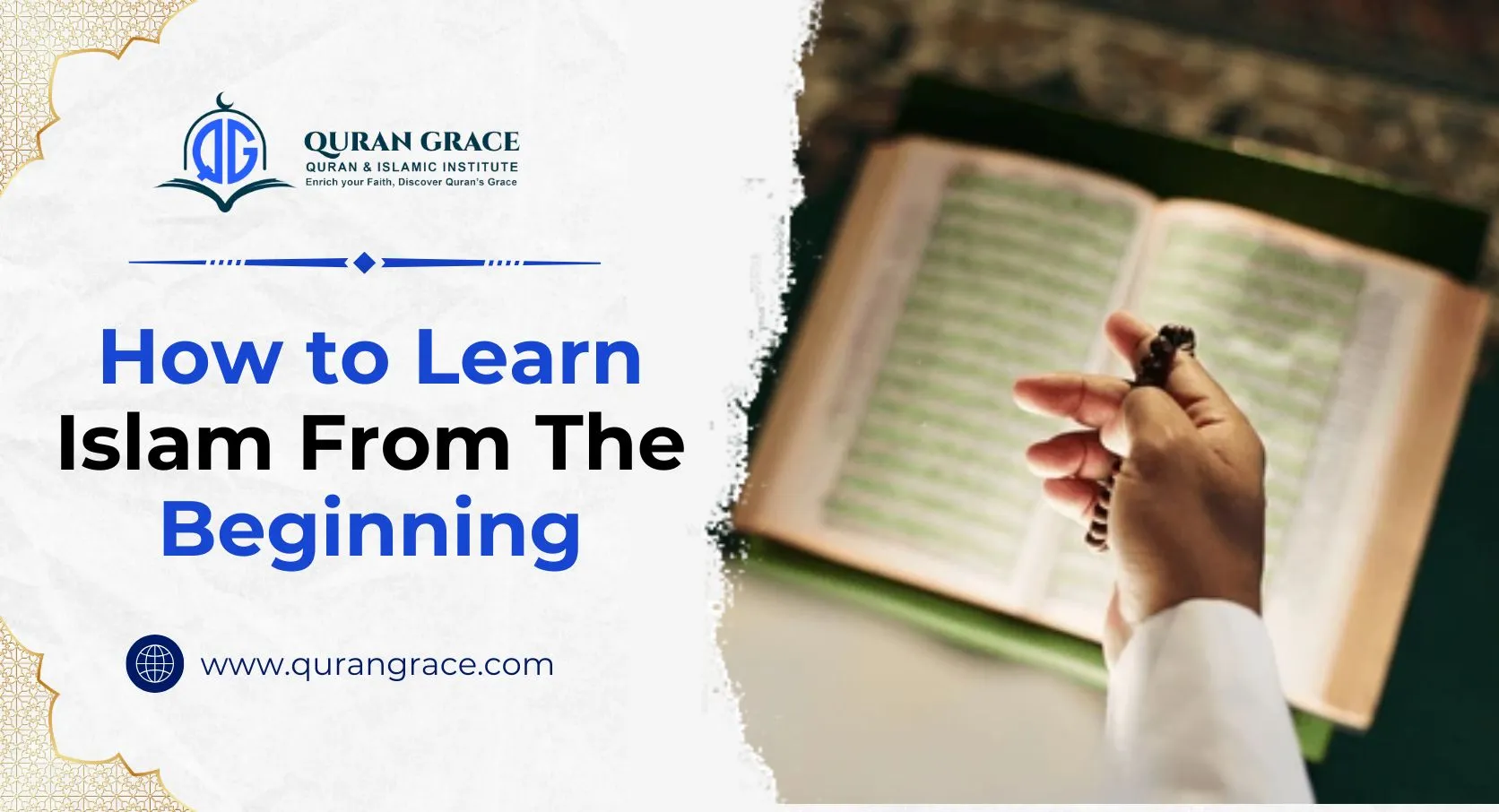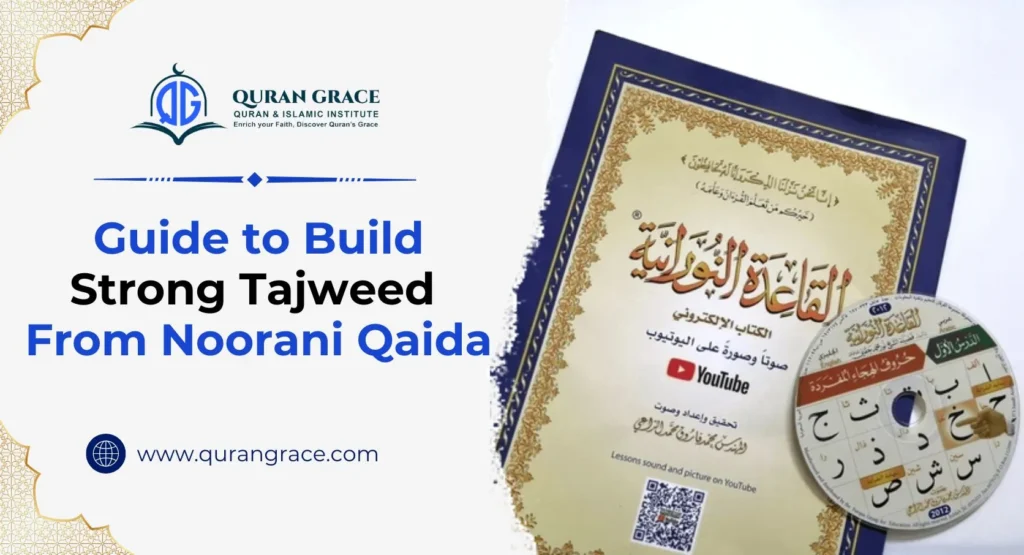Beginning the journey to learn about Islam can feel overwhelming at first, especially with its vast spiritual, historical, and practical dimensions. The key is to start with the essentials — understanding the core beliefs that define Islamic theology, exploring the foundations of worship, and studying the primary sources such as the Qur’an and Hadith. Enrolling in an Islamic studies course can also provide structured guidance and help you connect with knowledgeable teachers and the Muslim community. Finally, studying the Seerah — the life and example of Prophet Muhammad (peace be upon him) — brings all these elements together, showing how faith is lived and practiced in everyday life.
Guide To Learn Islam From The Beginning
This guide offers a straightforward roadmap for those interested in exploring the fundamentals of Islam from the outset.
Table of Contents
Toggle1. Understanding the Core Beliefs (Theology)
Start by grasping the Six pillars of Faith (Iman), which form the bedrock of Islamic theology:
- Belief in One God (Allah): This is the central concept, known as Tawhid (monotheism). It means God is one, unique, and has no partners.
- Belief in Angels: Spiritual beings created by God to carry out His commands.
- Belief in Revealed Books: The divine revelations sent to various prophets, culminating in the Qur’an.
- Belief in Prophets and Messengers: Individuals sent by God to guide humanity (e.g., Adam, Noah, Abraham, Moses, Jesus, and finally, Muhammad, peace be upon them all).
- Belief in the Day of Judgment: The accountability for one’s deeds in the afterlife.
- Belief in Divine Decree (Predestination): The knowledge that everything happens by God’s will and wisdom.
2. Exploring the Foundations of Practice (Worship)
Once you understand the beliefs, move on to the Five Pillars of Islam, which are the obligatory acts of worship for Muslims:
- Shahada (Declaration of Faith): The testimony “There is no god but Allah, and Muhammad is His Messenger.”
- Salat (Prayer): Performing five mandatory prayers daily, facing the Kaaba in Mecca.
- Zakat (Charity): Giving a prescribed percentage of one’s wealth to the needy.
- Sawm (Fasting): Abstaining from food, drink, and other things from dawn till sunset during the month of Ramadan.
- Hajj (Pilgrimage): Making the pilgrimage to Mecca once in a lifetime, if one is physically and financially able.
Learning how these practices are performed—for example, the basic steps of Salat—will provide a tangible sense of the faith.
3. Studying the Primary Sources
Dive into the two main sources of Islamic teachings:
- The Qur’an: Considered the literal word of God, revealed to the Prophet Muhammad over 23 years. Begin by reading translations of key chapters, such as Surah Al-Fatiha (the opening chapter), and simplified interpretations (Tafsir). Focus on the message of the Qur’an: justice, mercy, ethics, and guidance.
- The Sunnah/Hadith: The practical examples, sayings, and approvals of the Prophet Muhammad. The Sunnah clarifies how to apply the principles outlined in the Qur’an. Reputable collections like Sahih al-Bukhari or Sahih Muslim are good starting points for reading authentic traditions.
4. Seeking Knowledge and Community
Learning is an active process. Don’t try to go it alone!
- Find a Teacher/Mentor: The best way to learn about any religion is through someone knowledgeable. Look for local Mosques or Islamic centers that offer beginner classes or lectures.
- Use Reputable Resources: There are countless books, websites, and podcasts on Islam. Look for resources authored or endorsed by well-respected scholars and institutions.
- Visit a Mosque: Attend an open house or simply visit during a non-prayer time to observe and respectfully ask questions. Experiencing the atmosphere and community (Ummah) can be very informative.
5. Focus on the Seerah (Prophet’s Biography)
Reading the Seerah (biography) of the Prophet Muhammad (peace be upon him) is vital. His life serves as the human example of how to embody the teachings of the Qur’an. Understanding the historical context in which Islam developed clarifies many aspects of the faith.
Bonus Tip
- Read a simple, engaging book on the basics of Islamic belief and practice.
- Look up the nearest Islamic center and see if they have a “New Muslims” or “Introduction to Islam” class.
- Start a focused reading plan for the Qur’an.
Conclusion
Remember, this is a beautiful and lifelong journey. Be patient with yourself, focus on understanding, and allow your knowledge to grow naturally. You can also join Quran Grace to learn about Islam in our Islamic Studies classes online, with a free consultation and trial class.








